Organ donation: Three stories of hope
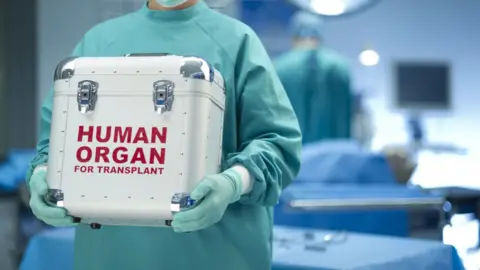 Getty Images
Getty ImagesIn Northern Ireland, 42% of people are on the NHS Organ Donor Register. Now the Department of Health has launched a consultation on a draft policy in a bid to get families discussing donations.
But what is it really like to know you are alive because of someone else's choice? Or to wait by the phone for the call that could save you? What is it like to talk about what will happen if tragedy strikes your nearest and dearest?
The donor family
Five-year-old Erin Bonar died suddenly in March 2014, but before her death she told her mum that she wanted to be an organ donor.
"We were watching TV and the ad campaign came on, Erin asked me what it was all about it and I explained it to her," Susan Bonar said.
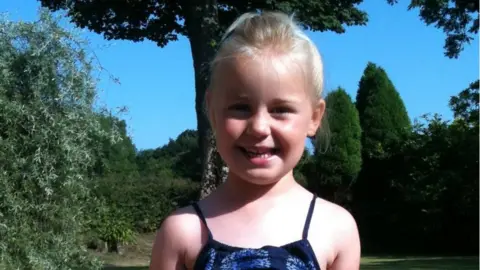 Bonar family
Bonar family"She told me that if anything happened to her she would want to give her whole body to help other children."
Now, the family are advocates of talking about organ donation with everyone, no matter their age.
Mrs Bonar has worked with the NHS to help medical staff approach grieving families.
"You hear so much about the recipient, but not so much from the donor family," she said.
"We have found it particularly healing and it gives you something good to say about what would otherwise just be a horrible tragedy.
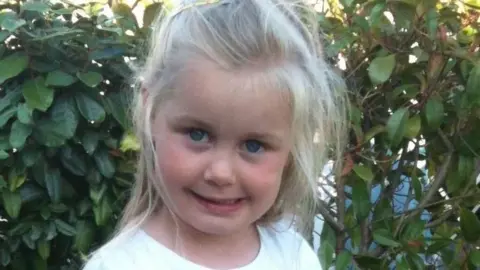 Bonar family
Bonar family"It is useful to explain to people how much it has helped our family.
"Medical staff can sometimes be reluctant to approach families who have already been through so much.
"But we would say: 'Don't shy away from that.'
"At least give the family the opportunity to make the decision because it has helped us."
Mrs Bonar has heard from one of the three children who are alive because of her daughter's decision and keeps a photograph of him in a frame with a picture of Erin.
On the list
Rory Rafferty, 31, needs a heart transplant and will most likely need a new liver too.
He was born with a degenerative condition known as hypertrophic obstructive cardiomyopathy, but was not diagnosed until his late teens.
He has been waiting for a new heart for three years and looks at the future with stark practicality.
"It would be best if I could get a liver and a heart from the same person because it reduces the risk of complications," said Mr Rafferty.
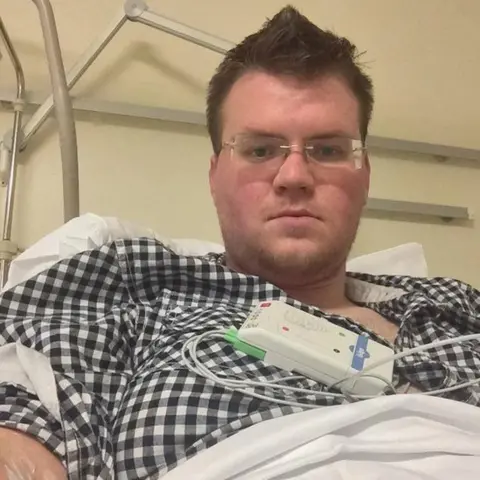 Rory Rafferty
Rory Rafferty"There are just so many variables - the person has to be a blood match and a bone marrow match.
"You are on the list, but you are dealt with in terms of priority.
"You have to be in a position where you are very ill in hospital around the same time when someone who is a match has had a terrible accident and they have to have told their family they want to donate.
"You're more likely to win the lottery."
Mr Rafferty said that while the opt-out system was controversial, it is something he supports.
"I have been brought up with a waste-not-want-not approach to life," he said.
"If you are wholly opposed to it, you can still opt out.
"The reality is most people are caught up in their own lives and maybe don't think about it until tragedy strikes their front door or they meet someone like me."
The recipient
Lucia Quinney Mee has had three liver transplants and views each of them as "a gift" from the donor.
She had her first transplant when she was eight-years-old.
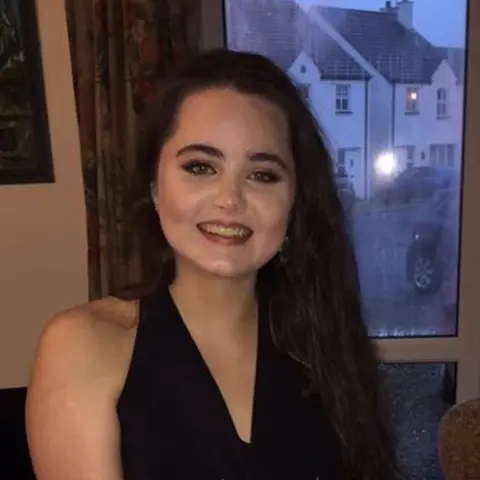 Lucia Quinney Mee
Lucia Quinney Mee"For me, it has always been a special thing to know that the decision has not been made for someone but has been a gift from each person or their family," said Ms Quinney Mee.
"Whatever system we have in place it is more important in my view that it operates alongside education and conversation.
"The family has the final say regardless, and so the opt-out system doesn't really address the problem.
"There is not enough evidence that the opt-out system results in more organ donations if it is done without education."
Miss Quinney Mee has written to two of her organ donors but has not heard anything back from them.
Her most recent liver transplant has been a success and she is finishing up her studies at Cross and Passion School in Ballycastle, County Antrim.
